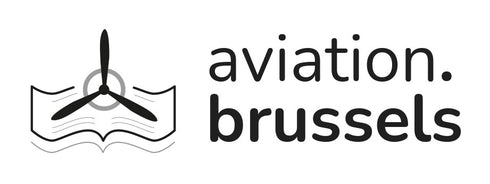Air Marshal Sir Robert Henry Magnus Spencer Saundby K.C.B., K.B.E., M.C., D.F.C., A.F.C., F.R.Ae.S., D.L. ( April 26th, 1896 - September 26th, 1971 ) was born in Birmingham ( West Midlands, England ).
Educated at King Edward VI School, Robert Saundby left in 1913 and joined the Traffic Department of the London and North Western Railway. He began the First World War serving in the British Army. On June 15th, 1914, he was commissioned into the Royal Warwickshire Regiment ( Territorial Force ).
Out of action for 8 months because of an attack of cerebrospinal meningitis ( February 1915 ), he did recover and on October 23rd, he applied to the R.F.C. His flying career began at Thetford ( Norfolk, England ) as part of No. 12 Reserve Squadron on February 28th, 1916. He then attended the Central Flying School ( C.F.S. ) at Upavon ( Wiltshire, England ), and saw further service with No. 40 Squadron at Gosport ( Hampshire, England ).
Robert Saundby became a qualified pilot and joined Britain's first single - seater Fighter Squadron, No. 24 Squadron. His initial successes began on July 31st, 1916 ; he drove down a Fokker Eindekker out of control. Transferred to No. 41 Squadron ( January 26th, 1917 ), he had shot down 9 enemy aircraft before being transferred to Home Defence in Great Britain. On June 17th, 1917, Robert Saundby was flying one of three aircraft that intercept a Zeppelin after she got lost trying to bomb London ( England ). The victory was shared among the three air crews.
In 1919, he received a permanent commission into the R.A.F. During the Interwar period, Robert Saundby served as Flight Commander in Egypt ( also serving there as an instructor ), Yemen and Great Britain. He also attended the R.A.F. Staff College at R.A.F. Andover ( Hampshire, England ) and the Imperial Defence College ( London ), and held various posts until 1940, rising to the rank of Air Vice - Marshal.
By 1940, Robert Saundby had become Senior Air Staff Officer ( S.A.S.O. ) at Bomber Command H.Q. February 1943 saw him appointed to the post of Deputy Air Officer Commanding - in - Chief. He was an advocate for the strategy of attacking German military industries and the morale of the German population by bombing German industrial areas and cities. Robert Saundby was a key deputy for Air Chief Marshal Arthur " Bomber, Butcher " Harris ( 1892 - 1984 ) throughout the remainder of the war. He retired on medical grounds from the R.A.F. on March 22nd, 1946.
Robert Saundby devoted much of his retirement to his role as Vice - Chairman, Council of Territorial and Auxiliary Forces Association. Fly - fishing was a great passion and he also became the president of the Piscatorial Society. Robert Saundby had many hobbies, and wrote several books on differing subjects including his role in the R.A.F. during the war : Air Bombardment, The Story of its Development, How the Bomber and the Missile Brought the Third Dimension to Warfare.
( source : Wikipedia )





























